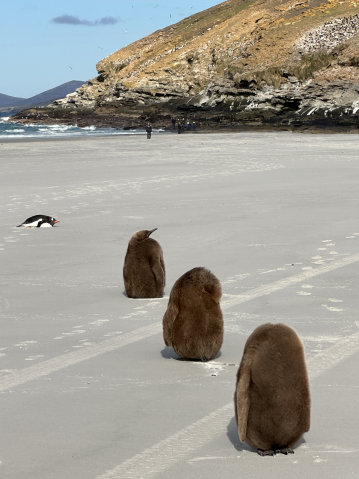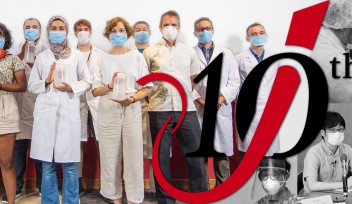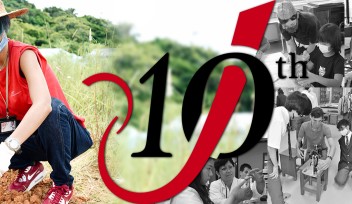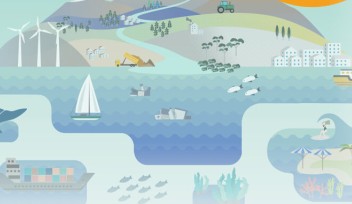Podcast: OIST scientist visits Antarctica as part of a global leadership initiative
In our latest OIST podcast episode, science communicator Merle Naidoo talks to Prof. Síle Nic Chormaic, head of OIST’s Light-Matter Interactions for Quantum Technologies Unit. She joined the sixth cohort of Team Homeward Bound, spending 20 intense days of learning and networking on board the Island Sky. Prof. Nic Chormaic explains how she secured the opportunity of a lifetime to visit the frozen continent, the highlights and challenges of her journey, and the precarious future of Antarctica.
Homeward Bound was launched in 2016 to increase the influence and impact of women with STEMM backgrounds in making decisions that shape the future of our planet.

Leadership, sustainability, and impact
The initiative aims to have 10 000 women who have participated in the program by 2030. These leaders will help develop solutions and influence others to help address global environmental issues in their local contexts.
Training in leadership, sustainability, and how to make an impact is prioritized. “Most of it was focused on the leadership...that having leadership with emotion is not a bad thing; that the perceived method of leadership, where you need to be cold and calculated is not necessarily the way that’s going to move [us] forward.”
Antarctica proved to be a strategic destination choice for the participants, who had limited internet access and joined in several intensive workshops and discussions with leadership experts each day: “The isolation that we had in Antarctica was probably the only place where we could forget...all the exterior factors, and really focus on the program,” Prof. Nic Chormaic explained.
At the time of their visit, most science stations were shut because of Covid-19, but the group had the opportunity to visit Palmer research station on Anvers Island.


Prof. Nic Chormaic highlighted the privilege of visiting Antarctica and the accompanying feelings of guilt when exploring this pristine environment which is increasingly impacted by mass tourism. She emphasized the importance of considering the environmental consequences of our decisions, urging us to critically evaluate the need for each choice we make.
With a commitment to diversity and equity, the leader of the Light-Matter Interactions for Quantum Technologies Unit sets a strong example by actively fostering what is arguably the most diverse research unit at OIST. “I strive, and there are ways to achieve this, and I think a lot of people aren't proactive. Once you’re proactive then it starts becoming natural...” she encouraged.
The future of Antarctica
Polar experts on board pointed to the massive melting of icebergs, declines in the populations of certain penguin species, and changes in vegetation as examples of the most visible effects of rising global temperatures in Antarctica.
“Islands are the first impacted and I come from an Island; I’m living on an Island,” Prof. Nic Chormaic stated. “...for places like Okinawa, this is really critical I would say.”


The Antarctic Treaty protects the continent, the only one without an indigenous human population, from commercial and military exploitation. However, many countries are not signatories to the treaty, and the rules to protect the environment do not apply to citizens of these countries.
Prof. Nic Chormaic explained that because she is Irish and Ireland is not a member of the treaty, she was not obligated to follow certain rules. “I kept saying I could do whatever I like here and I’m not breaking a law and that really struck me as crazy, that even if the others around me would say, ‘You’re not allowed to do that!’, I am, there’s no law telling me I can’t take something from Antarctica.”
She emphasized the impact of tourism expansion and the upcoming reassessment of the Antarctic Treaty. Scheduled for potential amendment in 2048 by member states, the review of the treaty could lead to large-scale exploitation of the continent’s resources. Additionally, the uncontrolled surge of tourist activity, along with the development of related infrastructure, could jeopardize the environment's pristine condition.
For more information, listen to the podcast episode detailing Prof. Nic Chormaic’s Antarctica experience here.
Research Unit
For press enquiries:
Press Inquiry Form














